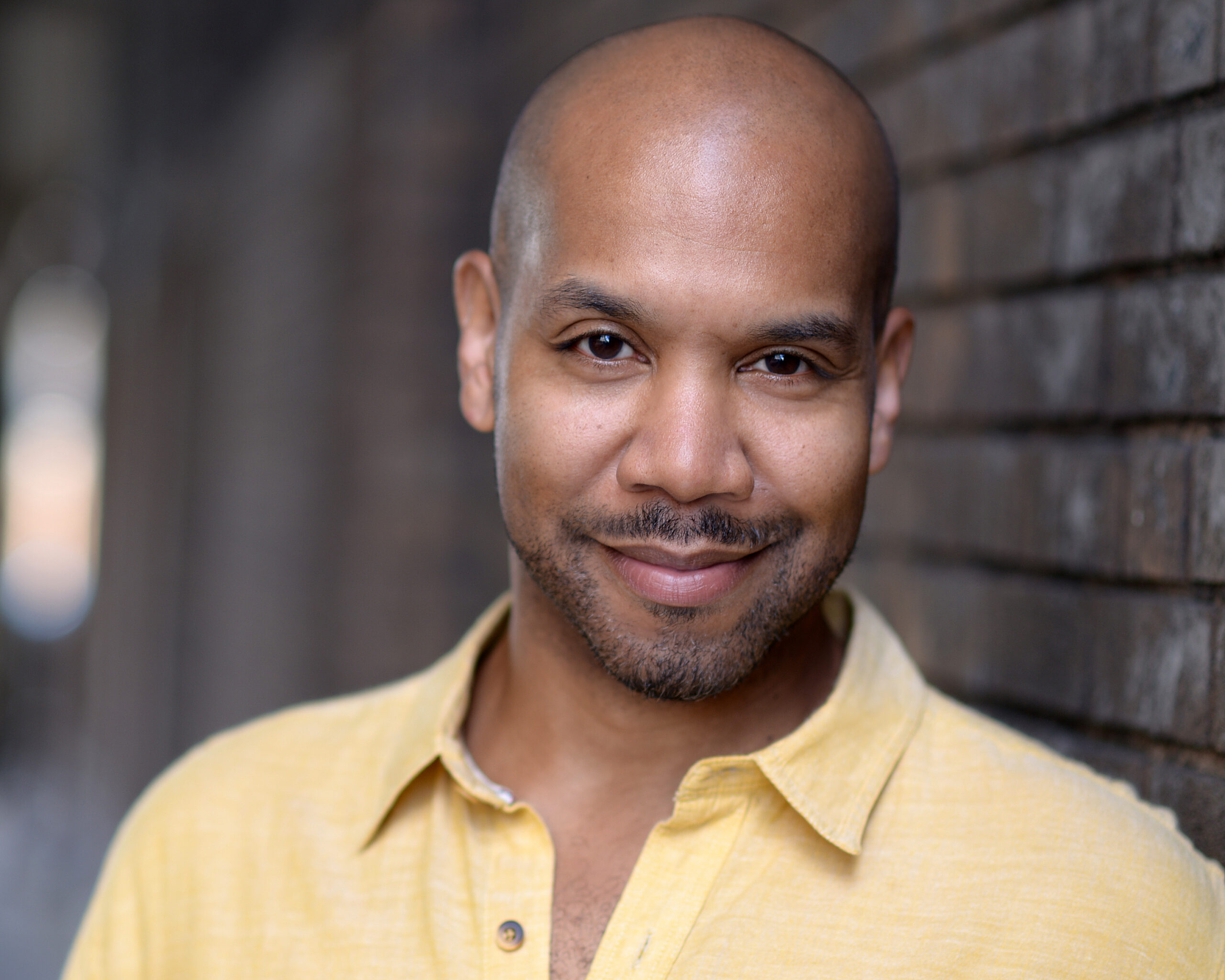BILLY STRAYHORN
Westinghouse High graduate had ‘irreplaceable contributions’ to jazz
by Marcia Liggett
For New Pittsburgh Courier
The O’Reilly Theater in Downtown Pittsburgh will be home to the world premiere of the Broadway-aimed musical, “Billy Strayhorn: Something to Live For,” placing a long overdue spotlight on Strayhorn’s life and irreplaceable musical contributions to American jazz.
William “Billy” Thomas Strayhorn was born Nov. 29, 1915, in Dayton, Ohio, and moved with his family to a humble homestead in Homewood during the early 1920s. As a child he learned to play the piano and later immersed himself in musical studies while attending Westinghouse High School. After graduating, Strayhorn continued his education at the acclaimed private Pittsburgh Musical Institute, headquartered in Oakland. The institution was in existence from 1915 to 1963, boasting numerous accomplished graduates, including Ahmad Jamal, Vivian Reed and Earl Wild.
Recognized as a local jazz phenom, Strayhorn was well known throughout the Pittsburgh area for his musical genius. However, it was an encounter on Dec. 1, 1938, that altered his life and professional career.
George Greenlee, nephew of Gus Greenlee, owner of the infamous Crawford Grill nightclub in the Hill District, took Strayhorn backstage at the Stanley Theater (now known as the Benedum Center). Strayhorn was introduced to the racial barrier-breaking jazz legend Duke Ellington.
Impressed with Strayhorn’s musical talents, Ellington gave Strayhorn an opportunity to collaborate in New York City. Shortly thereafter in 1938, Ellington hired the then 24-year-old Strayhorn, a decision that changed the course of jazz history, while solidifying Ellington’s legacy in musical infamy.
As the dynamic duo collaborated, Strayhorn composed music, arranged lyrics, occasionally played piano during performances, and was a faithful friend to Ellington, while Ellington became the face of the music. Ellington and his band performed to sold out audiences as he headlined at the legendary Cotton Club in Harlem, and during his tour in Europe and Scandinavia in 1939.
Tired of financial exploitation by manager Irving Mills, Ellington shattered racial barriers during the Jim Crow Era of segregation in the early 1940s by creating his own music publishing firm, Tempo Music, ensuring personal control of his music copyrights and royalties.
Strayhorn composed numerous songs for the band under the protection of Tempo Music, while Ellington returned to Victor Records (having previously recorded at various record labels) in 1940 to expand his recorded catalog. Strayhorn’s composition, “Take the A Train,” was an instant hit, revitalizing Ellington’s career, legitimizing the label and providing a steady source of revenue for Ellington. It became the band’s theme song going forward and is still deemed one of the most important songs in jazz history by music historians as it showcased Strayhorn’s extraordinary ability to blend jazz and classical music, while celebrating the cultural revolution during the swing era in America.
 https://newpittsburghcourier.com/wp-content/uploads/sites/3/2023/08/MV5BMzI2MzhmMWYtNGY1OC00NzQ4LTg0NjYtMGU1ZmJlZDQ2ZDJkXkEyXkFqcGdeQXVyMjQwMDg0Ng@@._V1_-1536x1229.jpg 1536w, https://newpittsburghcourier.com/wp-content/uploads/sites/3/2023/08... 2048w, https://newpittsburghcourier.com/wp-content/uploads/sites/3/2023/08... 375w, https://newpittsburghcourier.com/wp-content/uploads/sites/3/2023/08... 750w, https://newpittsburghcourier.com/wp-content/uploads/sites/3/2023/08... 1140w" sizes="(max-width: 2560px) 100vw, 2560px" />
https://newpittsburghcourier.com/wp-content/uploads/sites/3/2023/08/MV5BMzI2MzhmMWYtNGY1OC00NzQ4LTg0NjYtMGU1ZmJlZDQ2ZDJkXkEyXkFqcGdeQXVyMjQwMDg0Ng@@._V1_-1536x1229.jpg 1536w, https://newpittsburghcourier.com/wp-content/uploads/sites/3/2023/08... 2048w, https://newpittsburghcourier.com/wp-content/uploads/sites/3/2023/08... 375w, https://newpittsburghcourier.com/wp-content/uploads/sites/3/2023/08... 750w, https://newpittsburghcourier.com/wp-content/uploads/sites/3/2023/08... 1140w" sizes="(max-width: 2560px) 100vw, 2560px" />
DARIUS DE HAAS
Despite the song’s timeless achievement and the success of many other songs Strayhorn composed throughout the following decades, he remained an unsung hero and a constant force behind the scenes for Ellington’s success until his death in New York City in 1967. Strayhorn died at just 51 years of age.
Embraced by the art scene in Pittsburgh, Strayhorn’s impact remains visible as both the Kelly Strayhorn Theater (KST) and the KST’s Alloy Studios in East Liberty and Friendship bear his name.
Now he will be reincarnated on stage in hopes of keeping his story alive and relevant to future generations of jazz enthusiasts.
“This world premiere new musical follows the highs and lows of Billy Strayhorn’s career, the joys and heartbreak of his personal life, and the challenges he faced living as an openly gay Black man in mid-20th century America at the dawn of the civil rights movement,” explained Pittsburgh Playhouse Theater (PPT) in a release.
 https://newpittsburghcourier.com/wp-content/uploads/sites/3/2023/08/Mollison_JD_628_xret-224x300.jpeg 224w" sizes="(max-width: 574px) 100vw, 574px" />
https://newpittsburghcourier.com/wp-content/uploads/sites/3/2023/08/Mollison_JD_628_xret-224x300.jpeg 224w" sizes="(max-width: 574px) 100vw, 574px" />
J.D. MOLLISON
“Billy Strayhorn was an innovator and a real musical genius. He had such an indelible and distinctive musical voice which was evident in the output of material and music that he wrote, composed, and wrote lyrics for,” explained Kent Gash, the director and co-author of the new Strayhorn musical. “He’s written and co-written some of the most beloved music in the American songbook but is not well known for those contributions like Gershwin or Ellington.”
 https://newpittsburghcourier.com/wp-content/uploads/sites/3/2023/08/Billy-Porter-Headshot-by-Meredith-Truax-1025x1536.jpeg 1025w, https://newpittsburghcourier.com/wp-content/uploads/sites/3/2023/08... 200w, https://newpittsburghcourier.com/wp-content/uploads/sites/3/2023/08... 750w, https://newpittsburghcourier.com/wp-content/uploads/sites/3/2023/08... 1140w" sizes="(max-width: 1367px) 100vw, 1367px" />
https://newpittsburghcourier.com/wp-content/uploads/sites/3/2023/08/Billy-Porter-Headshot-by-Meredith-Truax-1025x1536.jpeg 1025w, https://newpittsburghcourier.com/wp-content/uploads/sites/3/2023/08... 200w, https://newpittsburghcourier.com/wp-content/uploads/sites/3/2023/08... 750w, https://newpittsburghcourier.com/wp-content/uploads/sites/3/2023/08... 1140w" sizes="(max-width: 1367px) 100vw, 1367px" />
BILLY PORTER
Gash is a graduate of the Carnegie Mellon University School of Drama, as are co-author Rob Zellers and Pittsburgh’s own Grammy, Tony and Emmy Award winner Billy Porter, who recently joined the musical’s team as a producer. J.D. Mollison, a Broadway star, actor and fellow CMU grad, will depict Duke Ellington in the musical.
“I couldn’t think of a better city for this to premiere in because Billy spent his formative years in Pittsburgh. He was fed, fueled and supported by the community. And nobody is better equipped on the planet to tell this story for us than Darius de Haas.”
Darius de Haas, playing Billy Strayhorn, will be performing in Pittsburgh for the first time. Mark Power (investor and longtime friend of Zellers) describes de Haas as “a Strayhorn scholar,” sharing that “de Haas had the great benefit and unique opportunity of sitting with and talking to Luther Henderson, Ellington’s former bandmember, where he learned from firsthand accounts of Strayhorn.”
“Billy’s talent was so prodigious that despite grave circumstances, he survived and became a testament for Black people making a way out of no way. It’s a blessing to bring him to the forefront where the audience can get an idea of what his viewpoint was, how he felt about things, what his loves were, his hates, his points of view, etc.,” de Haas shared. “We are at a time in our history where people are happy to reinvent, erase or bury our history, so this to me is the perfect time” for the musical to debut.
Matthew Whitaker, a 22-year-old jazz pianist and composer, will be making his musical directorial debut, leading a nine-piece jazz band for the musical. The orchestrator, Tony Award-winner Bruce Coughlin, will assist Whitaker with Strayhorn-inspired arrangements and settings of the songs.
“Jazz is America’s only true original art form,” explained de Haas, who has been singing the Strayhorn catalog for over two decades. “People oftentimes look at me quizzically when I mention Strayhorn and Ellington. These are the giants on whose shoulders we stand. This is why it is so important to scream, shout and sing their names to the high heavens because of what they contributed to our culture.”
The musical runs in Pittsburgh at the O’Reilly Theater for 21 performances, Sept. 19 to Oct. 8.
“I think the musical will be particularly appreciated and celebrated where Billy spent most of his formative years as there’s a huge, rich legacy of jazz brilliance that came into and from Pittsburgh,” Gash told the New Pittsburgh Courier. “My hope is that all of Pittsburgh will hear the clarion call that is Darius de Haas, and they will be taken into the world of one of our greatest composers and lyricists through this work. It’s so nice to be able to put this life, this music, this creative genius, this spirit, that was so ahead of his time on stage and share that with people.”
You need to be a member of Pittsburgh Jazz Network to add comments!
Join Pittsburgh Jazz Network